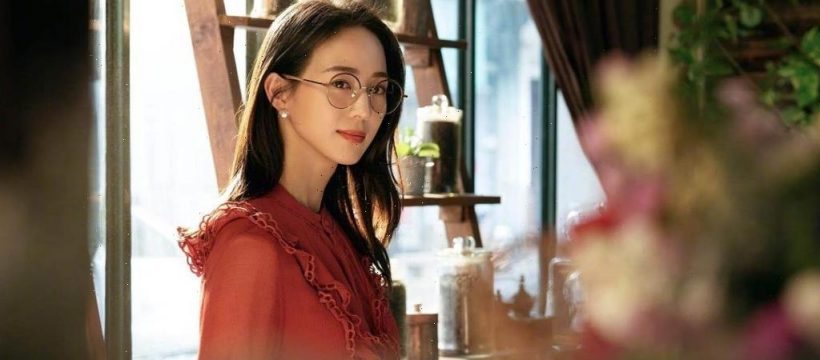When Taiwanese actor Janine Chang was writing her masters’ thesis in industrial economics in 2010, she likely never imagined that two Chinese characters in it would become a diplomatic flashpoint and threaten to derail her lucrative acting career more than a decade later.
This week, however, it has done just that. Her thesis at Taiwan’s National Central University entitled “Issues Related to the Country’s Artist Management and Legal Systems” has sparked an enormous wave of Chinese nationalist criticism online over her use of the word “country.”
It was proof, jingoistic social media users in China argued, that she was pro-Taiwanese independence and should be blacklisted — even though Chang ranks among the most outspoken Taiwanese entertainers to vocally take a pro-China stance.
Governments on both sides of the straits quickly jumped in to comment on the seemingly inconsequential celebrity news item, the latest indication of just how politicized China’s volatile entertainment industry has become in recent months.
Democratic Taiwan is self-governed, but China insists that it is a renegade province. Taiwanese stars must pledge allegiance to Beijing and its political views in order to continue their careers in China.
As rumors swirled that Chang’s upcoming TV series — whose name translates to “Female Psychiatrist” — might be affected by the uproar, her studio was quick to head off negative press with an official statement that “she has always seen herself as Chinese.”
Chang wrote on her official Weibo: “Chinese people on both sides of the strait are all part of the Chinese nation. I am not pro-Taiwanese independence.” Her legal representatives have issued letters asking online commenters to delete “defamatory and false” content and apologize. Chang’s representatives did not reply to a request for comment.
Taiwanese president Tsai Ing-wen issued a statement about the situation without directly naming Chang, decrying China’s intimidation of artists for their political views as “unbelievable and unacceptable.”
“Banning someone and stripping them of their right to work because of speech deemed undesirable is not only an infringement on individual rights, but also highlights the value differences between democracy and authoritarianism on the two sides of the straits,” she wrote on Facebook Wednesday. “This will not contribute in any positive way to cross-strait exchange.”
China’s governmental Taiwan Affairs Office shot back, calling her remarks “deliberate slander.”
“Some political forces and harmful media outlets have ulterior motives and are deliberately causing trouble in an attempt to obstruct the careers of Taiwanese artists in the mainland,” said spokeswoman Zhu Fenglian. “[We] warmly welcome Taiwanese entertainers to develop their careers in the mainland.”
Chang appeared last year in Ann Hui’s “Love After Love,” which premiered at Venice, as well as this year’s box office smash “Detective Chinatown 3.” She will next star in Chinese director Lu Chuan’s long-awaited thriller “Bureau 749” and an upcoming one-hour, ten-episode HBO Asia Original series “Who’s By Your Side,” directed by Peter Ho.
The Germany-born actor is also well-known for her roles in popular TV dramas such as the 2018 viral hit “Ruyi’s Royal Love in the Palace” and the spin-off “Detective Chinatown” franchise TV series.
Chang frequently re-posts patriotic content and memes from state media outlets. Earlier this year, she was among the first to drop her endorsement deal with Adidas in wake of Chinese calls for the boycott of brands concerned about cotton sourced from Xinjiang, where the U.S. has declared that there is an ongoing genocide.
Her moves have paid off. Chang was Taiwan’s highest-paid actor in the first half of this year, according to a ranking released in July by outlet Apple Daily Taiwan. She was also Taiwan’s highest paid actor of 2019 and the third highest paid in 2020, the outlet said. Most of her income comes from work and endorsement deals in China.
Unusual official media support for her indicates that her career will likely remain intact.
Identifying as Taiwanese does not simply equate to being pro-Taiwanese independence, attested a surprising op-ed published by the Chinese People’s Political Consultative Conference, a top governing body.
Its conclusion, however, was more familiar, reading: “China still welcomes some of those who have made or engaged in inappropriate remarks or actions, as long as they recognize their errors, change their mistaken positions, and resolutely support the reunification of the motherland.”
Source: Read Full Article
